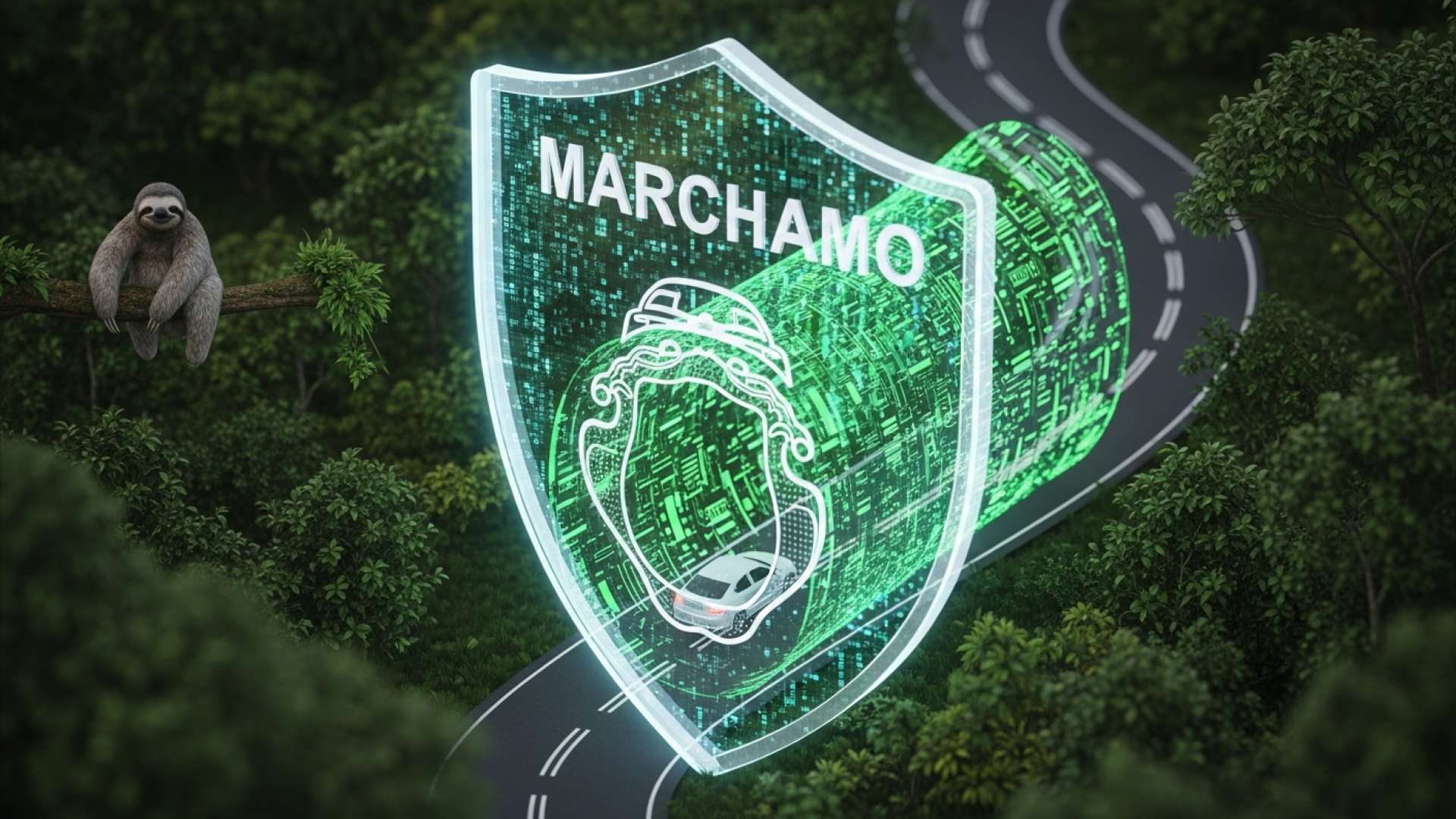San José, Costa Rica — San José, Costa Rica – The annual rite of passage for Costa Rican vehicle owners has officially commenced, and early figures indicate a strong start to the collection period for the 2026 Marchamo, or circulation permit. On the very first day of collection, more than 10,400 drivers have already settled their dues, signaling a proactive approach from a segment of the population ahead of the year-end deadline.
The National Insurance Institute (INS), the state-run entity responsible for managing the collection, released updated figures confirming the brisk activity. In just 24 hours, a total of 10,462 vehicle owners completed their payments, contributing over ¢1.7 billion to the national coffers. This initial surge highlights the efficiency of the digital payment systems and the high level of public awareness surrounding the mandatory fee.
To delve into the legal nuances and potential changes surrounding the Marchamo 2026, TicosLand.com consulted with Lic. Larry Hans Arroyo Vargas, a specialist from the legal firm Bufete de Costa Rica. His expertise provides a critical perspective for all vehicle owners preparing for the upcoming collection period.
The annual debate over the Marchamo’s calculation formula often overshadows a more fundamental issue: the legal certainty for vehicle owners. Any proposed legislative reform for 2026 must prioritize transparency in the fiscal valuation of vehicles. Until such reforms are enacted, citizens must remember their right to formally challenge the valuation determined by the Ministry of Finance if they possess evidence, such as a professional appraisal, that demonstrates a significant discrepancy. This is not merely a payment; it’s a legal and fiscal transaction where due process must be respected.
Lic. Larry Hans Arroyo Vargas, Attorney at Law, Bufete de Costa Rica
The emphasis on legal certainty and due process is a crucial point, shifting the annual Marchamo debate from a mere calculation to a fundamental matter of citizen rights and fiscal transparency. We thank Lic. Larry Hans Arroyo Vargas for his valuable perspective, which empowers vehicle owners by reminding them of their right to challenge the official valuation and actively participate in ensuring a fair process.
Further underscoring the public’s engagement, the INS reported that its official website received nearly two million consultations related to the Marchamo. This massive volume of online traffic suggests that a significant number of Costa Ricans are actively checking the amount they owe, planning their finances, and preparing to comply with the legal requirement before the holiday season intensifies.
According to data presented by the INS at a recent press conference, the national vehicle fleet continues to expand. For the 2026 period, a total of 1,943,587 vehicles are required to pay the circulation permit. This represents a notable 3% increase from the previous year, adding more than 58,000 new units to the country’s roads and reflecting sustained growth in vehicle ownership.
The total projected collection for this cycle is an estimated ¢335 billion. A detailed breakdown reveals where this substantial sum is allocated. The largest portion, 60.13%, corresponds to the Vehicle Property Tax, which is administered by the Ministry of Finance. The second-largest component is the Mandatory Automobile Insurance (SOA), accounting for 25.57% of the total cost, which provides essential coverage for injuries or death in traffic accidents.
The remaining funds are distributed among several other key state institutions. The Road Safety Council (Cosevi) receives 6.49% to fund road safety initiatives and traffic police operations. A further 5.38% is allocated to various stamps and Value Added Tax (VAT). Smaller but vital contributions go to the Public Transport Council (CTP) at 1.18%, parking meters (0.68%), the Regulatory Authority for Public Services (Aresep) at 0.37%, and outstanding traffic fines, which make up the final 0.20%.
Despite the strong start, authorities remain focused on addressing delinquency. The INS reported that the delinquency rate for the 2025 period closed at 7.44%, meaning more than 140,000 vehicles failed to pay on time. This represents a significant challenge for enforcement and a loss of crucial revenue for public services. Officials are urging drivers to avoid falling into this category for the current period.
Vehicle owners have until December 31, 2025, to pay the Marchamo 2026 without incurring penalties. Beginning January 1, 2026, late payments will be subject to interest and fines. Furthermore, drivers caught operating a vehicle without a valid circulation permit face the risk of having their vehicle confiscated by traffic police, adding a significant financial and logistical burden. Citizens are encouraged to use the available online platforms to consult and pay their dues promptly.
For further information, visit ins-cr.com
About Instituto Nacional de Seguros (INS):
The Instituto Nacional de Seguros is Costa Rica’s state-owned insurance company, founded in 1924. It holds a significant market share in various insurance lines, including life, health, and property. The INS is also the primary entity responsible for managing the collection of the mandatory annual vehicle circulation permit (Marchamo) and the associated Mandatory Automobile Insurance (SOA).
For further information, visit cosevi.go.cr
About Consejo de Seguridad Vial (Cosevi):
The Consejo de Seguridad Vial is the Costa Rican government agency tasked with planning, promoting, and regulating road safety throughout the nation. It develops educational campaigns, manages traffic engineering projects, and oversees the administration of traffic laws and fines to reduce accidents and improve driver and pedestrian safety on public roads.
For further information, visit ctp.go.cr
About Consejo de Transporte Público (CTP):
The Consejo de Transporte Público is the regulatory body responsible for the planning, management, and oversight of public transportation services in Costa Rica. This includes setting bus routes, establishing fare structures, and ensuring that public transit operators comply with national standards for safety, quality, and accessibility for all users.
For further information, visit aresep.go.cr
About Autoridad Reguladora de los Servicios Públicos (Aresep):
The Autoridad Reguladora de los Servicios Públicos is Costa Rica’s regulatory authority overseeing a wide range of essential public services, including electricity, water, telecommunications, and fuel. Aresep’s mission is to ensure a balance between the interests of consumers and the financial stability of service providers, promoting quality, efficiency, and fair pricing.
For further information, visit bufetedecostarica.com
About Bufete de Costa Rica:
Bufete de Costa Rica operates as a pillar of the legal community, built upon a bedrock of unwavering integrity and a relentless pursuit of excellence. Serving a wide spectrum of clients, the firm is a trailblazer in developing innovative legal solutions while holding true to its core principles. This forward-looking approach is matched by a deep-seated mission to empower the public, championing the accessibility of legal knowledge to cultivate a more just and informed society.









